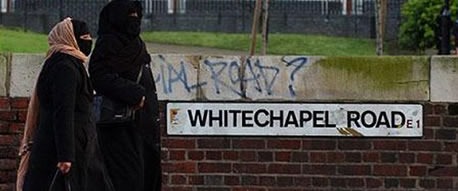Group Have “Experienced Greater Unemployment”

Discrimination by employers means that Muslim women are much more likely to be unemployed than white Christian women even when they have the same qualifications and language abilities, new research shows.
Dr Nabil Khattab told the British Sociological Association’s annual conference in Glasgow that Muslim women in the UK were around 70% more likely to be looking for work unsuccessfully.
Dr Khattab, of the University of Bristol, said that they “have experienced greater unemployment, which can be attributed to discrimination in recruiting and hiring practices.”
Survey data showed that the unemployment rate among Muslim women was 18%, compared with 9% for Hindu women and 4% for white Christian women, he said.
Previous research had attributed this to Muslim women being less well educated and less fluent in English: on average 21% of Muslim women aged 19-59 had degrees, compared with 44% of Hindu women and 30% of white Christian women. Only 29% of Muslim women had English as their first language.
However, Dr Khattab took a sample of 2,643 replies to surveys to compare the rates of people looking for work without success, and carried out a statistical analysis to compare women with similar educational level and language abilities.
He found that Muslim women were 71% more likely than white Christian women to be unemployed, even when they had the same educational level and language skills. Hindu women were 57% more likely to be unemployed than white Christian women.
These figures were also adjusted to remove any effects of marital status, whether the women had children and the strength of their religious belief.
“This study uses data to explain the employment patterns among Muslim women in the UK,” Dr Khattab told the conference. “It provides a thorough analysis of a wide range of factors that have not been analysed in previous studies such as the impact of language skills and the importance of religion.
“Economic activity among Muslim women in the UK remains considerably lower and their unemployment rate remains significantly higher than the majority group even after controlling for qualifications and other individual characteristics.”
He said that Muslim women’s high visibility was likely to be a key factor in explaining their exclusion. “They wear the hijab or other religious symbols which makes them more visible and as such exposed to greater discrimination.”
He said that by controlling for the religious intensity of Muslim women in the analysis, it was likely that cultural factors such as the reluctance by some of them to work in certain jobs had been ruled out as a reason for their higher unemployment rate.
• Dr Khattab’s research drew on three surveys: the overall rate of unemployment comes from the Labour Force Survey (2002-2013) in the UK, with 229,000 responses. He also drew on the Longitudinal Study of Young People in England (2004-2010) and Understanding Society (2009) in the UK for his analysis.


































